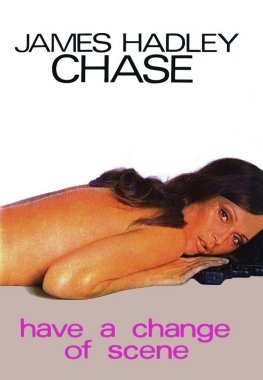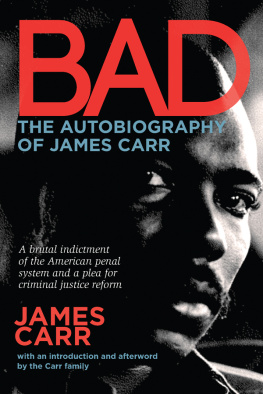Caleb Carr - The Alienist
Here you can read online Caleb Carr - The Alienist full text of the book (entire story) in english for free. Download pdf and epub, get meaning, cover and reviews about this ebook. year: 2006, publisher: Random House, genre: Detective and thriller. Description of the work, (preface) as well as reviews are available. Best literature library LitArk.com created for fans of good reading and offers a wide selection of genres:
Romance novel
Science fiction
Adventure
Detective
Science
History
Home and family
Prose
Art
Politics
Computer
Non-fiction
Religion
Business
Children
Humor
Choose a favorite category and find really read worthwhile books. Enjoy immersion in the world of imagination, feel the emotions of the characters or learn something new for yourself, make an fascinating discovery.

- Book:The Alienist
- Author:
- Publisher:Random House
- Genre:
- Year:2006
- Rating:3 / 5
- Favourites:Add to favourites
- Your mark:
- 60
- 1
- 2
- 3
- 4
- 5
The Alienist: summary, description and annotation
We offer to read an annotation, description, summary or preface (depends on what the author of the book "The Alienist" wrote himself). If you haven't found the necessary information about the book — write in the comments, we will try to find it.
Caleb Carr: author's other books
Who wrote The Alienist? Find out the surname, the name of the author of the book and a list of all author's works by series.
The Alienist — read online for free the complete book (whole text) full work
Below is the text of the book, divided by pages. System saving the place of the last page read, allows you to conveniently read the book "The Alienist" online for free, without having to search again every time where you left off. Put a bookmark, and you can go to the page where you finished reading at any time.
Font size:
Interval:
Bookmark:
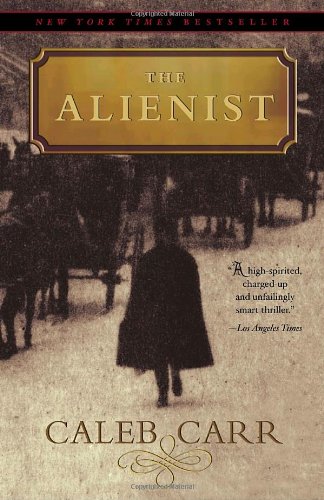
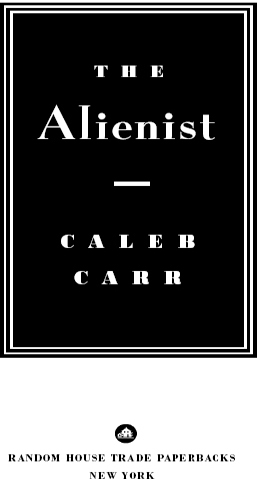
CONTENTS
This edition is dedicated to
Those Readers Who Made It Possible
and to the memory of
Dr. David Abrahamsen
NOTE
Prior to the twentieth century, persons suffering from mental illness were thought to be alienated, not only from the rest of society but from their own true natures. Those experts who studied mental pathologies were therefore known as alienists.
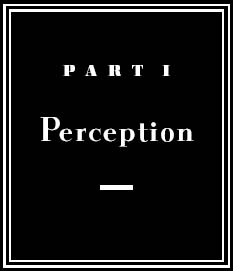
Whilst part of what we perceive comes through our senses from the object before us, another part (and it may be the larger part) always comes out of our own mind.
William James,
The Principles of Psychology
These bloody thoughts, from what are they born?
Piave,
from Verdis Macbeth
CHAPTER 1
January 8th, 1919
T heodore is in the ground.
The words as I write them make as little sense as did the sight of his coffin descending into a patch of sandy soil near Sagamore Hill, the place he loved more than any other on earth. As I stood there this afternoon, in the cold January wind that blew off Long Island Sound, I thought to myself: Of course its a joke. Of course hell burst the lid open, blind us all with that ridiculous grin and split our ears with a high-pitched bark of laughter. Then hell exclaim that theres work to doaction to get!and well all be martialed to the task of protecting some obscure species of newt from the ravages of a predatory industrial giant bent on planting a fetid factory on the little amphibians breeding ground. I was not alone in such fantasies; everyone at the funeral expected something of the kind, it was plain on their faces. All reports indicate that most of the country and much of the world feel the same way. The notion of Theodore Roosevelt being gone is thatunacceptable.
In truth, hed been fading for longer than anyone wanted to admit, really since his son Quentin was killed in the last days of the Great Butchery. Cecil Spring-Rice once droned, in his best British blend of affection and needling, that Roosevelt was throughout his life about six; and Herm Hagedorn noted that after Quentin was shot out of the sky in the summer of 1918 the boy in Theodore died. I dined with Laszlo Kreizler at Delmonicos tonight, and mentioned Hagedorns comment to him. For the remaining two courses of my meal I was treated to a long, typically passionate explanation of why Quentins death was more than simply heartbreaking for Theodore: he had felt profound guilt, too, guilt at having so instilled his philosophy of the strenuous life in all his children that they often placed themselves deliberately in harms way, knowing it would delight their beloved father. Grief was almost unbearable to Theodore, Id always known that; whenever he had to come to grips with the death of someone close, it seemed he might not survive the struggle. But it wasnt until tonight, while listening to Kreizler, that I understood the extent to which moral uncertainty was also intolerable to the twenty-sixth president, who sometimes seemed to think himself Justice personified.
KreizlerHe didnt want to attend the funeral, though Edith Roosevelt would have liked him to. She has always been truly partial to the man she calls the enigma, the brilliant doctor whose studies of the human mind have disturbed so many people so profoundly over the last forty years. Kreizler wrote Edith a note explaining that he did not much like the idea of a world without Theodore, and, being as hes now sixty-four and has spent his life staring ugly realities full in the face, he thinks hell just indulge himself and ignore the fact of his friends passing. Edith told me today that reading Kreizlers note moved her to tears, because she realized that Theodores boundless affection and enthusiasmwhich revolted so many cynics and was, Im obliged to say in the interests of journalistic integrity, sometimes difficult even for friends to toleratehad been strong enough to touch a man whose remove from most of human society seemed to almost everyone else unbridgeable.
Some of the boys from the Times wanted me to come to a memorial dinner tonight, but a quiet evening with Kreizler seemed much the more appropriate thing. It wasnt out of nostalgia for any shared boyhood in New York that we raised our glasses, because Laszlo and Theodore didnt actually meet until Harvard. No, Kreizler and I were fixing our hearts on the spring of 1896nearly a quarter-century ago!and on a series of events that still seems too bizarre to have occurred even in this city. By the end of our dessert and Madeira (and how poignant to have a memorial meal in Delmonicos, good old Dels, now on its way out like the rest of us, but in those days the bustling scene of some of our most important encounters), the two of us were laughing and shaking our heads, amazed to this day that we were able to get through the ordeal with our skins; and still saddened, as I could see in Kreizlers face and feel in my own chest, by the thought of those who didnt.
Theres no simple way to describe it. I could say that in retrospect it seems that all three of our lives, and those of many others, led inevitably and fatefully to that one experience; but then Id be broaching the subject of psychological determinism and questioning mans free willreopening, in other words, the philosophical conundrum that wove irrepressibly in and out of the nightmarish proceedings, like the only hummable tune in a difficult opera. Or I could say that, during the course of those months, Roosevelt, Kreizler, and I, assisted by some of the best people Ive ever known, set out on the trail of a murderous monster and ended up coming face-to-face with a frightened child; but that would be deliberately vague, too full of the ambiguity that seems to fascinate current novelists and which has kept me, lately, out of the bookstores and in the picture houses. No, theres only one way to do it, and thats to tell the whole thing, going back to that first grisly night and that first butchered body; back even further, in fact, to our days with Professor James at Harvard. Yes, to dredge it all up and put it finally before the publicthats the way.
The public may not like it; in fact, its been concern about public reaction thats forced us to keep our secret for so many years. Even the majority of Theodores obituaries made no reference to the event. In listing his achievements as president of the Board of Commissioners of New York Citys Police Department from 1895 to 1897, only the Heraldwhich goes virtually unread these daystacked on uncomfortably, and of course, the solution to the ghastly murders of 1896, which so appalled the city. Yet Theodore never claimed credit for that solution. True, he had been open-minded enough, despite his own qualms, to put the investigation in the hands of a man who could solve the puzzle. But privately he always acknowledged that man to be Kreizler.
He could scarcely have done so publicly. Theodore knew that the American people were not ready to believe him, or even to hear the details of the assertion. I wonder if they are now. Kreizler doubts it. I told him I intended to write the story, and he gave me one of his sardonic chuckles and said that it would only frighten and repel people, nothing more. The country, he declared tonight, really hasnt changed much since 1896, for all the work of people like Theodore, and Jake Riis and Lincoln Steffens, and the many other men and women of their ilk. Were all still running, according to Kreizlerin our private moments we Americans are running just as fast and fearfully as we were then, running away from the darkness we know to lie behind so many apparently tranquil household doors, away from the nightmares that continue to be injected into childrens skulls by people whom Nature tells them they should love and trust, running ever faster and in ever greater numbers toward those potions, powders, priests, and philosophies that promise to obliterate such fears and nightmares, and ask in return only slavish devotion. Can he truly be right?
Font size:
Interval:
Bookmark:
Similar books «The Alienist»
Look at similar books to The Alienist. We have selected literature similar in name and meaning in the hope of providing readers with more options to find new, interesting, not yet read works.
Discussion, reviews of the book The Alienist and just readers' own opinions. Leave your comments, write what you think about the work, its meaning or the main characters. Specify what exactly you liked and what you didn't like, and why you think so.

